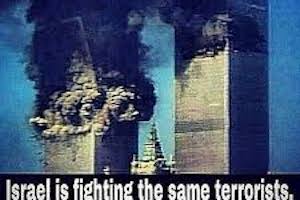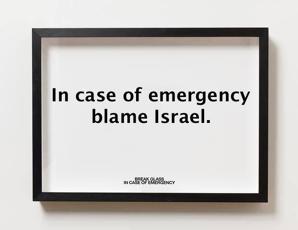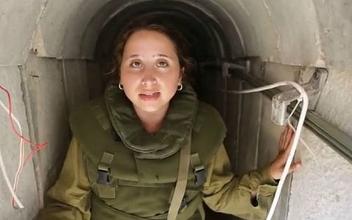How Israel Prevented a Rosh HaShanah War
Algemeiner
Sep 18, 2014
Rosh Hashanah and Yom Kippur, the two holiest days on the Jewish calendar, will now forever be linked as the two most crucial moments in Israel’s military history – one for a surrender to foreign pressure, one for a bold defiance of foreign pressure.
In the days leading up to the 1973 Yom Kippur War, some officials in both the United States and Israel came to suspect that Egypt and Syria might be planning to attack.
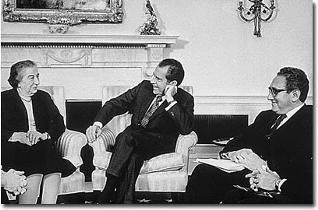
Secretary of State Henry Kissinger telephoned Israel’s acting ambassador in Washington, Mordechai Shalev, and relayed to him a “presidential entreaty” – that is, a direct demand by the White House – that Israel refrain from launching a preemptive strike.
This was revealed in the book ‘The Secret Conversations of Henry Kissinger,’ by Matti Golan, chief diplomatic correspondent for the left-wing Israeli newspaper Haaretz. The chief of staff of the Israeli Army, General David Elazar, later testified before an Israeli government commission of inquiry that he had recommended a pre-emptive strike, but Prime Minister Golda Meir turned it down, on the grounds that Israel would lose America’s support if it struck first. For the same reason, Meir rejected Gen. Elazar’s request for a full mobilization of Israel’s reserve troops.
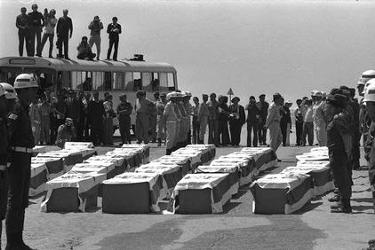
What happened next is well known. Israel suffered massive casualties in the war. The Egyptians and Syrians made enormous territorial gains, before eventually being pushed back.
Kissinger, seeing how Israel gave in to his pressure on the eve of the war, did it again. He delayed America’s airlift of weapons and ammunition so that Israel would not score too big a victory. And he pressured Israel to release Egypt’s Third Army, which General Ariel Sharon had encircled in a brilliant maneuver.
Israel’s surrender to American pressure only invited more pressure. Giving in to Kissinger’s demands did not win Israel the U.S. support it expected.
As the current Gaza war has unfolded, another Arab plan to attack Israel on one of its holiest days has been revealed.
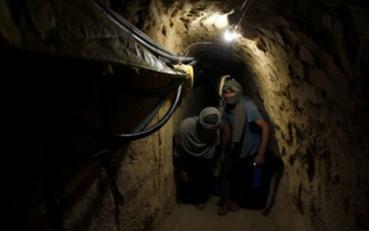
It turns out that Hamas was planning to use its vast network of underground tunnels to perpetrate a mass terror attack on Israel this coming Rosh Hashanah.
The plan was for two hundred terrorists dressed in stolen Israeli army uniforms to emerge simultaneously from numerous tunnels, and invade six kibbutzim and towns in southern Israel, to slaughter and kidnap the residents. The initial force of 200 was to be followed by a wave of several thousand additional terrorists.
Even Haaretz has characterized it as a “mega-attack.” The details were learned from Palestinian terrorists captured and interrogated by Israel in recent days.
The Israeli newspaper Ma’ariv quoted senior security officials saying that “the war with Hamas prevented a disaster on the order of the Yom Kippur War.”
The reference to the Yom Kippur War was appropriate in more ways than one.
Today, as in 1973, Israel has been subjected to relentless pressure from the White House. President Obama and Secretary of State Kerry have been demanding that Israel hold back, cease fire, and stop striking Hamas.
But today’s Israeli leaders have learned from the Yom Kippur mistake.
Instead of surrendering to Obama’s pressure, they have been striking Hamas with decisive blow after decisive blow. Ignoring Obama’s outrageous demands, Israel has been destroying the terror tunnels, eliminating Hamas terrorists, and snuffing out Hamas rocket launchers.
The Yom Kippur Lesson prevented the Rosh Hashanah mega-attack.

Perhaps the attack on Rosh Hashanah is still in the works. We need to be CAUTIOUSLY optimistic, but not rest on our laurels.
Lesson sixteen of the Gaza war: Those who strike first will live to strike last.
Moshe Phillips and Benyamin Korn are members of the board of the Religious Zionists of America.

